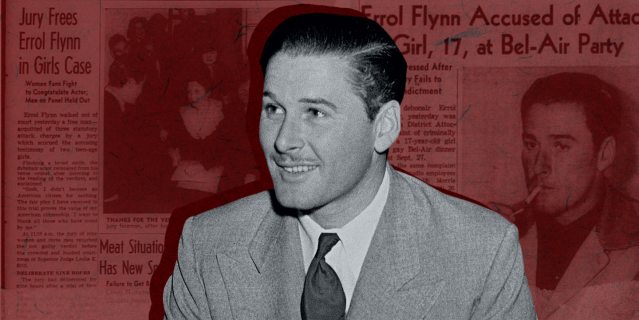Eight decades ago, during the height of the Pacific War, a scandalous event unfolded in Los Angeles.
In October 1942, amidst ongoing battles between American and Australian forces and the Japanese in the Solomon Islands, news broke of renowned actor Errol Flynn being accused of rape.
The allegations involved two young girls, one 17 years old and the other 15, and would spark a sensational Hollywood saga that shed light on the world of privilege and male entitlement.
Flynn, known for his swashbuckling roles, was not only an iconic film star but also a symbol of a new kind of promiscuous masculinity that rebelled against societal norms.
The charges against Flynn included raping a 17-year-old girl at a party in Bel-Air and twice raping a 15-year-old girl aboard his yacht a year earlier.
These accusations thrust Flynn into the spotlight, pitting him against the backdrop of a war-torn nation.
At the time, Flynn was starring in a film called “Desperate Journey,” a patriotic anti-Nazi drama.
Despite attempts to enlist in the US armed forces, Flynn was rejected due to tuberculosis, leaving him confined to playing war heroes on screen.
Flynn's colonial upbringing in Tasmania, Australia, played a significant role in shaping his identity.
He spent several years in the colonies of Papua and New Guinea, where he learned the ways of white colonial masculinity and exploited the power
Related Posts
- Throwback Thursday: Errol Flynn’s Controversial Statutory Rape Trial in 1934
- The Sensational Influence of Errol Flynn on Jack Nicholson
- Scandalous Revelations About Errol Flynn, The Dark Side of Hollywood’s Golden Boy
- Scandalous Facts About Errol Flynn: Unveiling the Dark Side of Hollywood’s Icon
- Inside the FBI Investigation on Errol Flynn: Hollywood Star’s Scandalous s=x Life Unveiled































